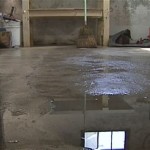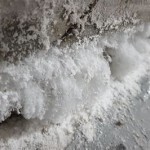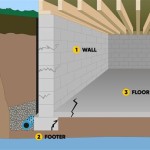Water Sealers For Basement Walls
Basement walls are a crucial part of your home's foundation, and they need to be protected from moisture in order to prevent water damage and mold growth. Water sealers are a great way to protect your basement walls from water damage, and they come in a variety of types to suit your needs.
There are two main types of water sealers for basement walls: penetrating sealers and topical sealers. Penetrating sealers soak into the concrete and form a barrier that prevents water from penetrating. Topical sealers, on the other hand, form a coating on the surface of the concrete that prevents water from getting through.
The type of water sealer that you choose will depend on the condition of your basement walls and the amount of moisture that they are exposed to. If your basement walls are in good condition and are only exposed to occasional moisture, then a topical sealer may be sufficient. However, if your basement walls are in poor condition or are exposed to a lot of moisture, then a penetrating sealer is a better choice.
When choosing a water sealer, it is important to read the product label carefully to make sure that it is suitable for your needs. You should also consider the cost of the sealer, the ease of application, and the durability of the product.
Water sealers are a great way to protect your basement walls from water damage, and they can help to keep your basement dry and mold-free.
How to Apply a Water Sealer to Basement Walls
Applying a water sealer to basement walls is a relatively simple process, but it is important to follow the manufacturer's instructions carefully to ensure that the sealer is applied properly.
- Clean the basement walls thoroughly to remove any dirt, dust, or debris. This will help the sealer to adhere to the walls.
- Apply the water sealer to the walls using a brush or roller. Be sure to apply the sealer evenly, and do not apply too much sealer, as this can make the walls sticky.
- Allow the sealer to dry completely before using the basement. The drying time will vary depending on the type of sealer that you are using.
Once the sealer is dry, your basement walls will be protected from water damage.
Advantages of Using a Water Sealer on Basement Walls
There are many advantages to using a water sealer on basement walls, including:
- Prevents water damage.
- Prevents mold growth.
- Keeps the basement dry.
- Makes the basement more comfortable.
- Increases the value of your home.
If you are looking for a way to protect your basement walls from water damage, then a water sealer is a great option.

How To Waterproof Basement Walls With Flex Seal Products

The Right Wrong Way To Waterproof Your Basement Wall

5 Steps For How To Waterproof Basement Walls From The Inside Wise Cracks

Diy Basement Waterproofing Sealonce System Easy Installation Waterproof Com

Waterproofing Basement Walls With Drylok Paint By Home Repair Tutor Youtube

Liquid Rubber Foundation Sealant Kit Black 1 Gallon 3 78l

Basement Waterproofing How It Works Costs

Flex Seal Liquid For Basement Waterproofing Flexsealproducts Com

4 Best Basement Wall Sealers To Waterproof Your Foundation

Exterior Basement Waterproofing You Get A Free Estimate Wall Solutions By Olshan
See Also








